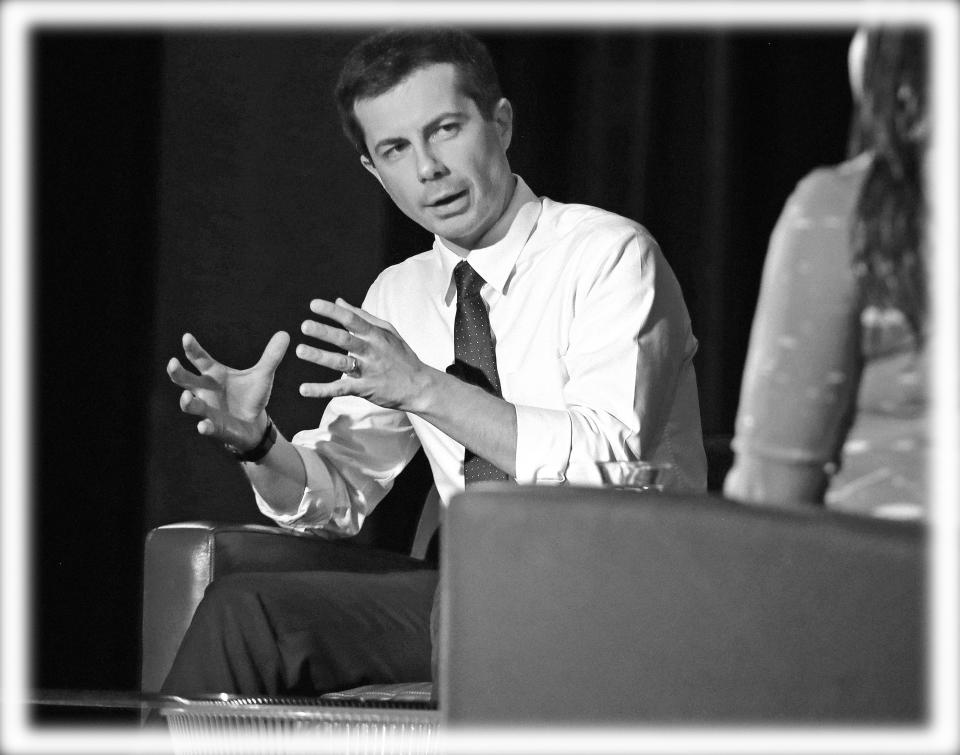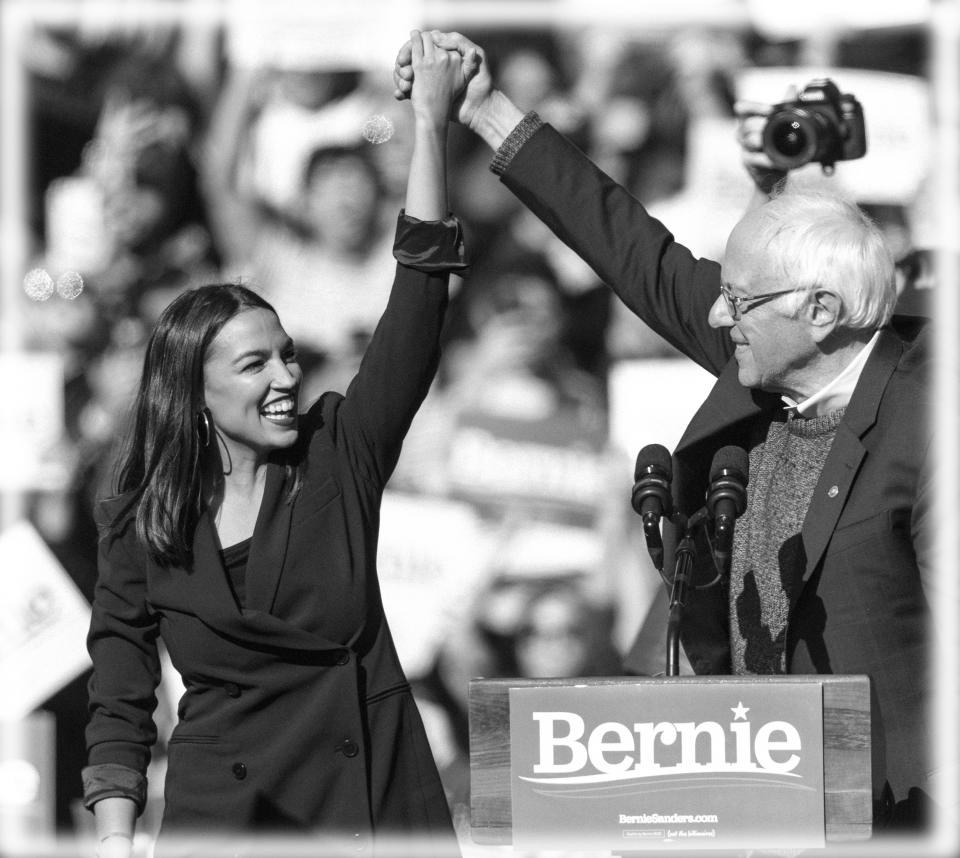Candidates divided on making college free
Presidential elections are decided by many things: media exposure, financial backing, personal chemistry, timing and luck. Policy positions often are just a way of signaling where a candidate stands on the political spectrum. But 2020 is shaping up to be different, the most ideas-driven election in recent American history. On the Democratic side, a robust debate about inequality has given rise to ambitious proposals to redress the imbalance in Americans’ economic situations. Candidates are churning out positions on banking regulation, antitrust law and the future effects of artificial intelligence. The Green New Deal is spurring debate on the crucial issue of climate change, which could also play a role in a possible Republican challenge to Donald Trump.
Yahoo News will be examining these and other policy questions in “The Ideas Election” — a series of articles on how candidates are defining and addressing the most important issues facing the United States as it prepares to enter a new decade.


In his first State of the Union address, President Barack Obama set a bold goal for college education in the U.S.
“By 2020,” he said in 2009, “America will once again have the highest proportion of college graduates in the world.”
Obama followed up his higher education objective by declaring, “America cannot lead in the 21st century unless we have the best educated, most competitive workforce in the world.”
But in 2018, the U.S. ranked sixth among the 10 most educated countries in the world, based on data from the intergovernmental economic group the Organization for Economic Cooperation and Development.
One reason the country is falling short of Obama’s lofty goal is because college is too expensive. Over the last decade, average tuition and fees at private four-year schools rose 26 percent, while tuition plus fees at four-year public schools jumped 35 percent, CNBC reported in October.
In addition to rising tuition costs, crushing student loan debt and increased dropout rates are other massive barriers to attending or finishing college. Notwithstanding Obama’s ambitious goal, closing the earning gap between college grads and those who never enroll or drop out seems an increasingly remote prospect, given the reality that increasingly more jobs require a college degree and are going to college grads.

In 2005, Kalamazoo, Mich., drew national attention when an anonymous donor or donors pledged to provide college scholarships for all public high school graduates, regardless of family income, grades or disciplinary records. The Kalamazoo Promise, which started with the graduating class of 2006, has sent about 7,000 students to four-year universities or community colleges, paying over $117 million in college tuition.
The program inspired similar initiatives in states like Tennessee, which established its own Promise program and significantly increased full-time college enrollment. Within a decade after the Kalamazoo scholarship program began, Obama proposed making two years of community college free for “responsible” students in what was called “America’s College Promise.”

Similar plans implemented throughout the country have come under sharp criticism by conservatives on the grounds that they are subsidizing wealthy families. Meanwhile, liberal critics argued that free-tuition programs failed to account for other college expenses, such as books, school supplies, housing or transportation.
Today, almost two dozen states offer tuition-free two-year or four-year public college educations, emboldening Democratic presidential candidates to put forth progressive proposals to make college tuition-free everywhere.

Elizabeth Warren and Bernie Sanders have both proposed eliminating undergraduate tuition at public colleges and universities while expanding Pell Grants, which provide financial support to low-income students that can be used for nontuition expenses such as books, food and transportation. Both also call for a government bailout of all or almost all student loan debt.
Warren’s plan would be funded by her proposed wealth tax, and Sanders’s by a tax on stock and bond transactions. He estimates the cost of universal tuition-free college, along with his plan to cancel all student debt, at $2.2 trillion.
Both “free college for all” proposals have been attacked by political rivals who argue that universal public education would benefit rich kids instead of poor and middle-class students who most need the help.
Notably, Pete Buttigieg has sharply criticized the idea of universal free college plans on the grounds that they would make higher education “free even for the kids of millionaires.”

The argument for making the program universal is that giving “millionaires” a stake in it would make it more difficult for a future administration to cut — in the way that Social Security is regarded as a sacred entitlement by most politicians.
“I believe we should move to make college affordable for everybody. There are some voices saying, ‘Well, that doesn't count unless you go even further, unless it’s free even for the kids of millionaires,’” Buttigieg said in a November campaign video touting his own college affordability plan.
Buttigieg proposed to make public college education tuition-free only for families earning up to $100,000 annually, while offering reduced tuition on a sliding scale to households earning between $100,000 and $150,000.
Meanwhile, moderate candidates such as Minnesota Sen. Amy Klobuchar and former Vice President Joe Biden, who’ve spoken out against free four-year college, put forth less progressive plans that would offer tuition-free community college for at least two years or technical training.

While the idea of free public college has majority support among young Americans, a key voting demographic for Democrats, support for the progressive plan falls after cost estimates for comprehensive education plans from Warren ($1.25 trillion) and Sanders ($2.2 trillion) are factored in, according to recent data from Harvard University’s Institute of Politics. Youth voter support drops from 56 to 51 percent, but there remains overall majority support, especially among likely Democratic primary voters (69 percent), when the elimination of all student loan debt and the establishment of tuition-free public universities are taken into consideration.
The debate over free college is not new in the Democratic Party. It previously materialized during a 2015 presidential debate when former Secretary of State Hillary Clinton took issue with Sanders’s proposal.
“I believe that we should make community college free. We should have debt-free college if you got to a public college or university. You should not have to borrow a dime to pay tuition,” Clinton said. “I disagree with free college for everybody. I don’t think taxpayers should be paying to send Donald Trump’s kids to college.”
A year later, as the Democratic nominee, Clinton partially adopted Sanders’s plan, putting forth a version that would have made college tuition-free for all students from families making $125,000 a year or less.
Progressives who support more ambitious proposals like those floated by Warren and Sanders argue that moderate plans such as Buttigieg’s more closely resemble Republican rhetoric against government-funded programs for income-based applicants such as Social Security, Medicare, food stamps or K-12 public education.
Sanders supporter Rep. Alexandria Ocasio-Cortez, D-N.Y., for instance, blasted Buttigieg’s criticism of free college, saying it would “benefit everybody.”

“This is a GOP talking point used to dismantle public systems, & it's sad to see a Dem candidate adopt it,” Ocasio-Cortez, a democratic socialist, wrote on Twitter. “Just like rich kids can attend public school, they should be able to attend tuition-free public college.”
She continued: “Universal public systems are designed to benefit EVERYBODY! Everyone contributes & everyone enjoys. We don’t ban the rich from public schools, firefighters, or libraries bc they are public goods.”
As the primary field continues to take shape, Democrats continue to debate how far the party can veer to the left while remaining viable in the general elections. Last month, Obama warned Democratic primary candidates to avoid skewing too progressive in their campaigns and policy proposals.
“Voters, including Democrats, are not driven by the same views that are reflected on certain left-leaning Twitter feeds, or the activist wing of our party,” Obama said. “And that’s not a criticism to the activist wing. Their job is to poke and prod and text and inspire and motivate. But the candidate’s job, whoever that ends up being, is to get elected.”
“Even as we push the envelope and we are bold in our vision we also have to be rooted in reality,” he continued. “The average American doesn’t think we have to completely tear down the system and remake it.”
While Obama’s 2020 goal is likely to go unfulfilled, the party continues to wrestle with whether tuition-free college will help the country realize it quicker and be a winning issue at the ballot box.
_____
Download the Yahoo News app to customize your experience.
Read more from Yahoo News:





